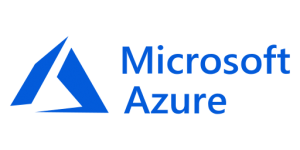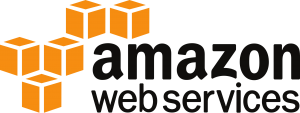Comparison Chart: GCP vs Azure vs AWS for Data Analytics
By Sandip Chaturvedi | @intelia | August 4



Exponential growth of data within enterprises is driving a continuous desire to scale up to meet organisational Data & Analytics needs.
Most businesses now recognise the need to push for Cloud adoption to leverage the power of Data & Analytics in support of business innovation, increased speed, increased agility, increased scale and active cost management.
In the public cloud vendor domain, Google, Microsoft and Amazon are in a continuous battle for supremacy in the Enterprise Data & Analytics space.
intelia have prepared a Comparison Chart that analyses and compares Data & Analytics offerings from each of these vendors across a number of key capability areas including consideration for “future proofing”.
Click here to access the Comparison Chart
Our Key Observations
- All three cloud providers are heavily competing for cloud dominance and there is a continuous focus to improve the customer experience
- Due to first mover advantages, AWS is the market leader in cloud provider penetration but GCP and Azure are actively increasing market penetration globally
- With various high-end customers using all three cloud platforms, it indicates that all these have the ability to deliver the desired business outcomes
- GCP offers more customer-friendly pricing models and discount models. It is a point of differentiation. Gartner noted, “Google uses deep discounts and exceptionally flexible contracts to try to win projects from customers that are currently spending significant sums of money with cloud competitors.” (ref)
- Google Cloud is more matured in AI/ML capabilities development amongst these 3 providers with a focus on future proofing e.g., AI Hub innovation, support for open source etc
- Challenge is – best-cloud-provider vs best-suited-cloud-provider – It should rather be driven by the business outcome, ease of maintenance and then followed by associated cost management. Sometimes, lack of ease of maintenance can add to people cost e.g., BigQuery vs Azure SQLDW vs Amazon Redshift maintenance
- Google leads in modernisation and invention. Google invented the Kubernetes standard and released it as open source. We see that AWS and Azure now offer the Kubernetes
- Hybrid/Multi-cloud space is evolving and it is the future. Google (using Anthos) has taken a more holistic approach onto this followed by Microsoft Azure and AWS
- Hybrid/Multi-cloud itself requires a lot of enterprise thinking (e.g., deployment automation, orchestration, multi-cloud management, integration needs etc) and therefore respective organisation must develop a multi-cloud strategy to meet their requirements
- The public cloud spaces are rapidly growing and evolving and, therefore the organisation must consider big picture (e.g., business outcome, innovation, maintainability, interoperability, multi-cloud support and cost etc.) and discourage chasing perfection instead tackling prioritised business use cases
References
- https://aws.amazon.com/machine-learning/
- https://www.computerworld.com/article/3429365/aws-vs-azure-vs-google-whats-the-best-cloud-platform-for-enterprise.html
- https://www.veritis.com/blog/aws-vs-azure-vs-gcp-the-cloud-platform-of-your-choice/
- https://www.educba.com/aws-vs-azure-vs-google-cloud/
- https://www.onmsft.com/news/azure-revenue-beats-aws-and-google-cloud-again
- https://www.bmc.com/blogs/aws-vs-azure-vs-google-cloud-platforms/
- https://intellipaat.com/blog/aws-vs-azure-vs-google-cloud/#no3
- https://chartio.com/blog/operations-and-maintenance-amazon-redshift-and-google-bigquery/
- https://www.datamation.com/cloud/aws-vs-azure-vs-google-cloud/
- https://www.datamation.com/cloud/multicloud-strategy-best-practices/
- https://www.makeuseof.com/aws-vs-azure-vs-google-cloud/
- https://www.climatiq.io/blog/cloud-computing-amazon-google-microsoft-helping-companies-go-greeno
- https://azure.microsoft.com/en-au/blog/microsoft-joins-open-invention-network-to-help-protect-linux-and-open-source/
- https://medium.com/@vineetjaiswal/introduction-comparison-of-mlops-platforms-aws-sagemaker-azure-machine-learning-gcp-vertex-ai-9c1153399c8e
- https://mikaelahonen.com/en/blog/comparison-of-machine-learning-platforms-in-major-clouds/